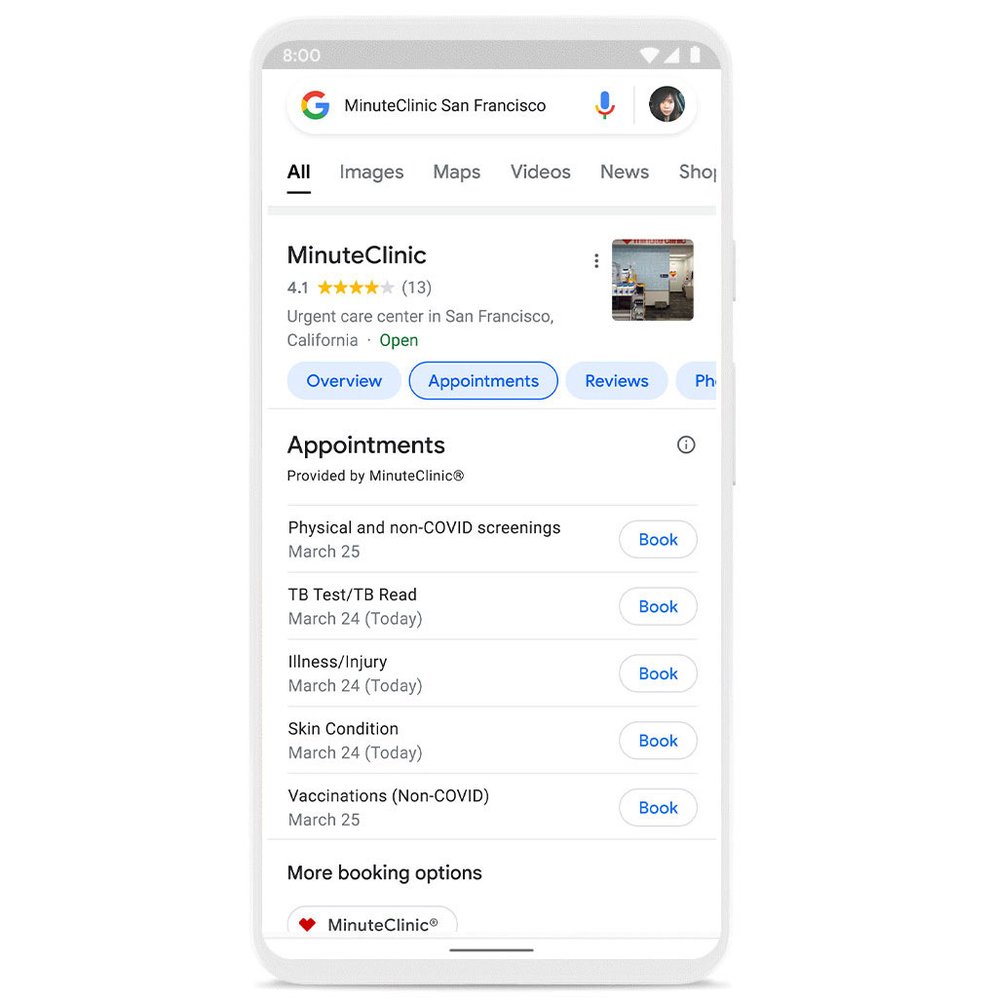My years spent caring for patients at the bedside and in the clinic inspired me to find ways to improve health for them and their communities at scale. That passion eventually brought me to Google where I could help solve the world’s most significant health challenges.
I joined the company just weeks before the COVID-19 pandemic unfolded. At the time, most people hadn’t heard of “flattening the curve” or “mRNA vaccines.” But what they did know was that they could turn to Google with their questions. The COVID-19 pandemic strengthened our resolve that Google could and should help everyone, everywhere live a healthier life. It also accelerated our company-wide health efforts.
We embed health into our products to meet people where they are. Our teams apply their expertise and technological strengths and harness the power of partnerships to support our 3Cs – consumers, caregivers and communities around the world.
Today, we’re hosting our second annual Google Health event, The Check Up. Teams from across the company — including Search, YouTube, Fitbit, Care Studio, Health AI, Cloud and Advanced Technologies and Projects team — will share updates about their latest efforts.
Among the areas of progress, I’m delighted at the ways our teams are working to support consumers with helpful information and tools throughout their health journeys.
Making it easier to find and book local care providers in the U.S.
When people have questions about their health, they often start with the internet to find answers. No matter what people are searching for on Google Search, it’s our mission to give high-quality information, exactly when it’s needed.
The Search team recently released features to help people navigate the complex healthcare system and make more informed decisions, like finding healthcare providers who take their insurance.
At today’s event, Hema Budaraju, who leads our Health and Social Impact work for Search, introduced a feature we’re rolling out that shows the appointment availability for healthcare providers so you can easily book an appointment. Whether you put off your annual check-up, recently moved and need a new doctor, or are looking for a same-day visit to a MinuteClinic at CVS, you might see available appointment dates and times for doctors in your area.
While we’re still in the early stages of rolling this feature out, we’re working with partners, including MinuteClinic at CVS and other scheduling solution providers. We hope to expand features, functionality and our network of partners so we can make it easier for people to get the care they need.

Helping people in Brazil, India and Japan discover local, authoritative health content on YouTube
Of all the information channels people turn to for health information, video can be a helpful and powerful way to help people make informed healthcare decisions. People can watch and listen to experts translate complex medical terms and information into simple language and concepts they easily understand, and they can connect with communities experiencing similar conditions and health challenges.
Dr. Garth Graham talked about YouTube Health’s mission of providing equitable access to authoritative health information that is evidence-based, culturally relevant and engaging. In the past year, YouTube has focused on building partnerships with leading health organizations and public health leaders to increase the volume and visibility of authoritative health content through new features.
Starting this week in Japan, Brazil and India, YouTube is adding health source information panels on videos to provide context that helps viewers identify videos from authoritative sources, and health content shelves that more effectively highlight videos from these sources when people search for specific health topics. These context cues help people easily navigate and evaluate credible health information.
Supporting heart health with Fitbit
In addition to information needs, people use our consumer technologies and tools to support their health and wellness. Fitbit makes it easy and motivating for people to manage their holistic health, from activity and nutrition to sleep and mindfulness. Fitbit co-founder James Park shared how Fitbit believes wearables can have an even greater impact on supporting people with chronic conditions, including heart conditions like atrial fibrillation (AFib).
In 2020, the team launched the Fitbit Heart Study, with nearly half a million people who use Fitbit. The goal was to test our PPG (Photoplethysmography) AFib algorithm, which passively looks at heart rate data, to alert people to signs of an irregular heart rhythm.
We presented the study results at the most recent American Heart Association meeting, showing that the algorithm accurately identified undiagnosed AFib 98% of the time. We’ve submitted our algorithm to the FDA for review. This is one of many ways we’re continuing to make health even more accessible.
Building the future for better health
These updates are only a slice of what we covered at the event. Check out our Health AI blog post and tune into our event to hear more about ways we are advancing better, more equitable health for everyone.
